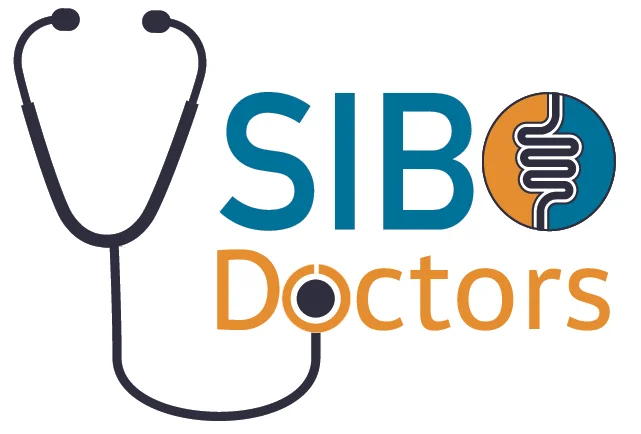If you have additional questions, please feel free to Contact Us.
What is SIBO?
SIBO stands for Small Intestinal Bacterial Overgrowth. As the name implies, there are too many bacteria thriving in the small intestine without being adequately pushed to the large intestine. SIBO can happen as a result of a variety of health conditions, such as stress, concussions, and even eating too frequently. Visit our dedicated webpage, or ask your Naturopathic Doctor for more details and if SIBO may apply to you.
I have heard SIBO is related to IBS. How so?
SIBO is considered an underlying cause to IBS, as research has shown that up to 84% of patients with IBS also have SIBO. Please read our blog post for more information.
What symptoms are associated with SIBO?
Direct symptoms of SIBO include:
- Abdominal Bloating
- discomfort
- burping/belching
- increased flatulence
- Heartburn
- Nausea
- Diarrhea and/or Constipation.
Indirect and associated symptoms of SIBO include skin conditions such as rosacea, eczema and acne. There are many associated conditions with a large number of symptoms. Click here for more information.
Is it true that eating healthy foods, such as fruits and vegetables, will aggravate my SIBO symptoms?
Yes, absolutely. When foods are high in fibre, they provide food to the bacteria in which they are able to consume and produce gasses that will aggravate SIBO symptoms. Read more here to find out why.
Where can I get tested?
Testing can be obtained through an qualified health professional. Visit a SIBO doctor and they will be able to assist you with testing, whether you live in British Columbia, or elsewhere. For more information regarding testing, please visit our Testing webpage.
How long is treatment for SIBO?
Treatment length varies patient to patient. Generally, there are 3 phases to treatment, and the timing of each phase varies depending on the type and severity of SIBO. After the first few weeks of treatment, patients notice an improvement in their symptoms. As a general rule of thumb, entire treatment can last a few months, but as mentioned previously, patients generally notice improvements in their health within the first weeks of treament (see Patient Testimonials). Speak with your SIBO Doctor for a more accurate and individualized timeline based on your SIBO results and plan.
What is a Naturopathic Doctor? How are they qualified to treat SIBO?
Naturopathic Doctors are primary health care providers, similar to medical doctors, dentists, and chiropractors. We must first obtain an undergraduate degree, followed by a 4 year program in Naturopathic Medicine, where emphasis is placed on treating the root cause, providing individualized care using alternative forms of medicine such as acupuncture, nutrition and lifestyle counseling, and the use of botanical medicine. Some Naturopathic Physicians also hold prescriptive rights, which allows them to use prescription mediciation when medically necessary. Candidates must pass standardized board exams followed by all local exams along with meeting local requirements for practice and prescriptive rights.
Additionally, Naturopathic Doctors are required to complete continuing education, which means they are able to stay updated on current research and conditions. For more information about Naturopathic Doctors, please visit the Canadian Associate of Naturopathic Doctors.
Are there different types of testing for SIBO? What about stool testing?
Currently, the best way to diagnose SIBO is using the 3-hour Lactulose Breath Test. Other methods, such as Small Intestinal sampling, are very invasive, and it is difficult to sample the entire length of the small intestine. Stool testing provides information regarding the Large Intestine, and therefore has no diagnostic benefit with respect to the Small Intestine, which is where SIBO occurs. Organic acid testing (OATs) has been gaining momentum for SIBO diagnostics by looking at other metabolic byproducts that are correlated to SIBO. It should not be used as a diagnostic test for SIBO. While it is an indicator that there may be some sort of dysbiosis (imbalance of good and bad bacteria) present, it is not as accurate as the Lactulose Breath Test. SIBO should be diagnosed and treated based on the Lactulose Breath Test.
Some companies offer 2-hour lactulose breath testing, which is not optimal, as it may miss diagnosing SIBO is the latter third of the small intestine. It is for this reason that we strongly suggest ensuring SIBO testing is done using the 3-hour Lactulose Breath Test
What is the difference between SIBO and Candida?
SIBO, as the name implies, is bacterial overgrowth in the small intestine. Candida is a fungus/yeast that that can also divide and grow in the small intestine, as well as other areas of the body. We all have candida present in our bodies, it is when there is an excess or overgrowth of candida that presents problems. The two conditions are both due to overgrowth, yet have different features and treatment protocols, which is why testing for SIBO is essential prior to treatment.

